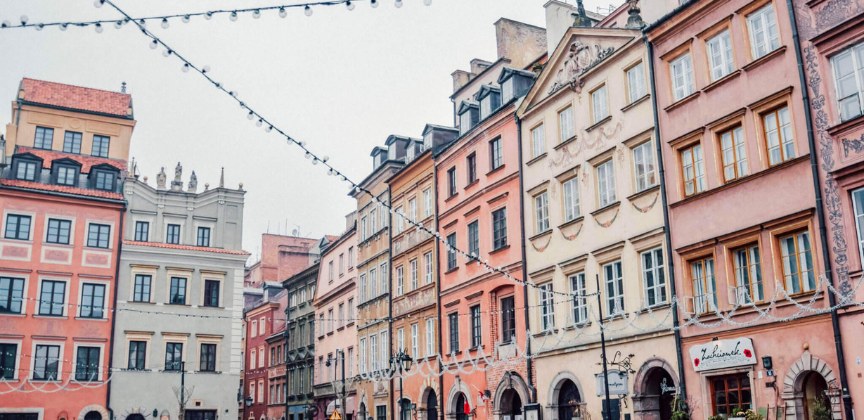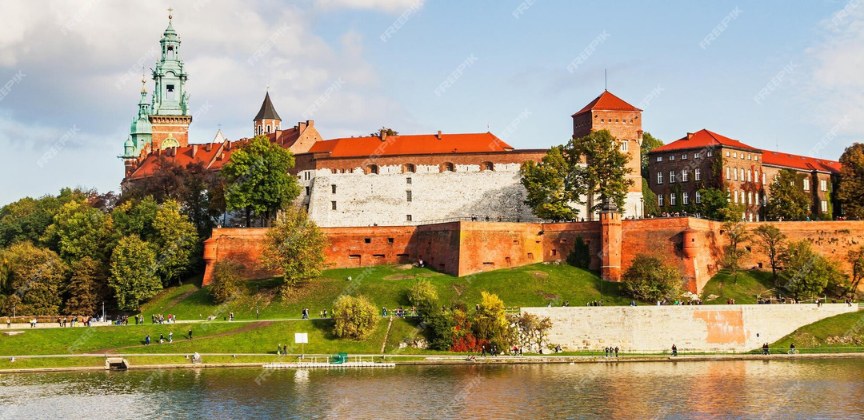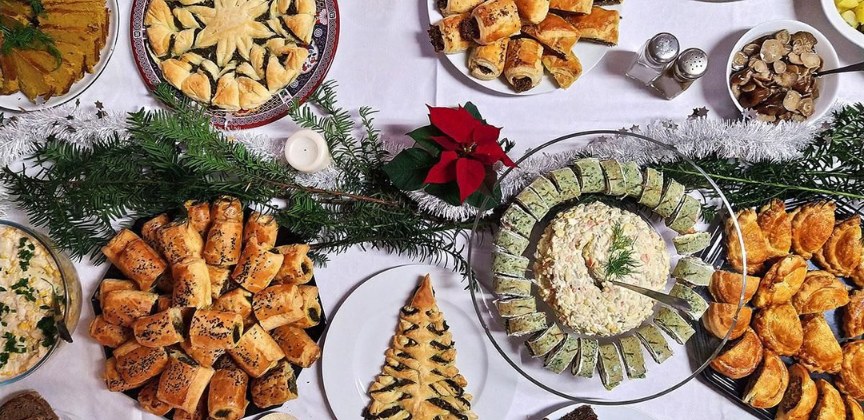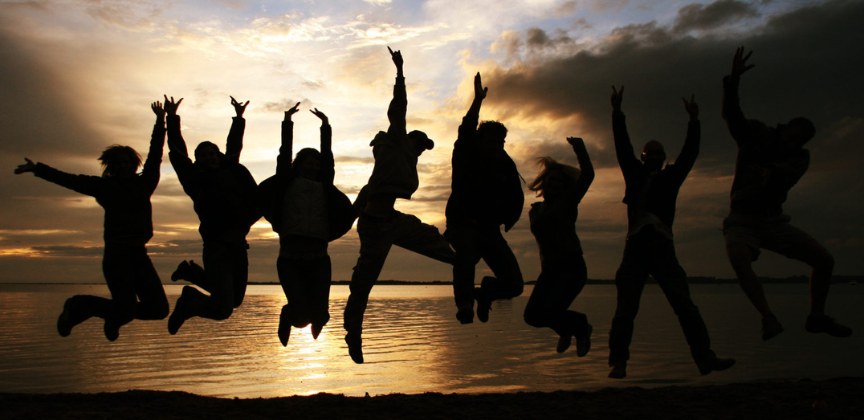Tax clearance certificate Poland – learn the legal basis, ZAP-3 registration, how to find your tax office, and 4 ways to get a personal no-arrears certificate.
Check out the brand NEW WELCOME CENTRE
Wow, what a time to be alive!
I never thought I would live through a global pandemic, much less in Poland. I think we’ve all read enough coronavirus-related speculation, advice, and predictions for a lifetime.
This post is about my experience living, teaching, and doing my best to get through quarantine in Kraków.
For anyone who doesn’t keep up with Polish news as closely as I do, here is a quick recap: For about two months, all restaurants, bars, shopping malls, and other places for social gathering were closed, schools were closed, the borders were closed, and the presidential election was postponed. Now that life in my country has largely returned to normal, it’s a better time than ever to reflect on what I’d been up to for the past few months.

Kraków’s usually-bustling Old Town on pandemic lockdown. As beautiful as ever, but not a single soul in sight.
To be fully honest, I struggled to adapt to my new normal. Truthfully, I felt like I had done enough adapting in the past few months thank you very much.
I am thankful to have a supportive teaching program by my side through all of this. From the moment everything closed, English Wizards was been checking in on all their teachers and doing their best to provide assistance in any form we might need. They answered my questions about the quarantine restrictions, held forums on how to adapt to online teaching and informed us of any and all additional teaching opportunities for those whose schedules had been affected. It was a relief to know there was someone in Krakow to call if I needed to.
Since quarantine started, I have done my best to make the most of it all. My newfound social life evaporated. Because solo exercise was considered a valid reason to be outside, I took up running again. I also poured myself into online teaching, and moved my social life over to Zoom.
Running has been such an escape throughout the last two months. I hadn’t run more than ten miles in the last six months (as in all of those months combined) so the first few jogs along the Vistula river trail left me huffing and puffing, but soon I got my stamina back.

Hidden behind Krakòw’s medieval castle is a picturesque running trail along the Vistula River. With most other outdoor activities banned, running became a huge part of my life.
A few weeks into quarantine the Polish government closed the parks, forests, and trails. I didn’t realize how much I relied on my daily walks and runs beside the river for my mental health, until they were gone. It might sound silly, but this was a huge loss for me. While we were allowed outside for exercise, it was like starting from square one again with virtually all running trails closed.
Luckily, this restriction didn’t last long, and about two weeks later parks and trails were allowed to reopen – with social distancing measures and mandatory mask-wearing, of course. I started to sense the solidarity every time I got a wave from a fellow mask-wearing runner each time we passed each other on the trail.
But I couldn’t go a whole two months without any human interaction. And when you can’t socialize in public but still are longing to be around people, your neighbors become your best friends.
I also happen to have have the sweetest Polish landlords. They welcomed a random foreigner with a vocabulary of ten Polish words not only as a tenant, but as a neighbor. Pre-pandemic, they would come by to check on me and stay to chat for thirty minutes while I pointed, nodded, smiled, and threw out a lot of “Dziękuję Ci” (thank yous!)
When Kraków fell under quarantine, I immediately thought of my landlords, their kindness, and their at-risk age category. I offered to pick up groceries for them on my weekly run, and they left me a list under my door the next morning.
I never knew that anyone bought cottage cheese with spring onion or ate that much sauerkraut until I double checked my translation. Unfortunately, I didn’t realize until after the fact that I bought fresh cucumbers instead of pickled. Also, it turns out “ciecierzyca” means chickpeas, not cookies.
Somehow, March descended into April and suddenly it was Easter weekend. I haven’t celebrated Easter since my mom stopped hiding plastic eggs in our living room, so it wasn’t a holiday weekend I had been thinking about. When my doorbell rang on a Saturday afternoon, it caught me off guard. I opened the door to find my Polish landlady standing there with arms holding out platters of food exclaiming, “Merry Christmas! Merry Christmas!”

“Thank you and Merry Christmas!” I said as I stifled a laugh and carried the dishes to the kitchen. I unwrapped a strange salad doused in mayonnaise, dried sausages, sauerkraut, horseradish, an orange, and two hard boiled eggs. It was, without a doubt, the strangest combination of food I have ever seen on a plate at one time. The gesture, however, warmed my heart. I am sure she knew I would be spending Easter alone, and while she couldn’t invite me into her home, she decided to share her family’s meal instead.
It’s moments like these that remind me why I came to Poland. Having recently taught in Spain and still having a forever lasting love for the country, I’ve also been keeping a close eye on the situation in Spain as I worry about my friends there.
Halfway through March, Spain instituted a total lockdown. People are allowed to leave their homes for food and medical reasons, but nothing else. Police roam the streets to enforce the measures.
Three weeks into the quarantine and nervous about how my beloved Spanish friends must be coping, I texted my ex-Spanish boyfriend’s mom, Croti, to check in. She responded instantaneously.
“Qué ilusión, puedo llamarte?” (How exciting, can I call you?)
And with that, I was wrapped into a three-way video call with Croti and her 70-year-old boyfriend, Diego.
As I got onto the video call, I was immediately flooded with memories. Arguing with Diego about how to pronounce zoo (my “zoo” vs. his “thoo”) in our beginners English class, and holding back tears in his living room when he gave me a book about Spain and thanked me for being his teacher.
My memories with Croti hit just as hard. I remember how embarrassed I was to speak to her in Spanish after my boyfriend finally introduced us. A few months later, Croti insisted I stay at their apartment my last week in Madrid. She made sure the fridge was overflowing with every vegetable known to man so we could all make comida vegetariana.
On the Zoom call, Croti and Diego mentioned coming to visit me in Krakow in September. Just like when I lived in Madrid, I smiled, expressed enthusiasm with “claro que sí!” and resigned myself to wait and see what happens. They ended the phone call by sending me un beso muy fuerte (a very strong kiss) –I’m never sure how to respond to that one– and a few compliments for my rusty Spanish.
The rest of the day I couldn’t wipe the smile off my face. What a privilege it is to love and be loved by such genuine people all over the world.

I’ll never forget the friends I made during my adventures teaching abroad During
times like these, close friendships are more imporant than ever.
I’ll be honest and say that global pandemics aren’t always the best time to be an English teacher. When Poland went into lockdown, I was furloughed from the Academy where I was teaching young Polish children due to the closure of schools in Poland.
But luckily, within a week or two English Wizards helped me iron out the details of a contract with a new employer. I was fortunate to be able to begin my new classes on Zoom with my Polish students. This time I would be teaching adults; a new experience for me. I also have a solid network of students through VIPKID, the company where I teach kids in China remotely as a freelance teacher. All in all, I count myself incredibly lucky to still be employed. This job security is what allowed me to stay in this beautiful city.
My young Chinese students bring so much joy to my every day. We typically work on colors, numbers, parts of the face/body, and sing songs lots and LOTS of songs that are now permanently seared into my brain, never ever to be forgotten, I’m sure.
The Polish students at my new school are all in their late twenties or early thirties. Individual lessons have given me an opportunity to develop connections with locals in a way that is not always accessible to foreigners. One of my students always seems to be there to laugh at me every time I text him at the grocery store struggling to tell the difference between fermented milk and heavy cream. He also seems very interested in judging my Polish dating life (here’s a hint, the scores are okay).
Another one of my other students has better grammar than I do. He sends me new recipes to try and offers to help with any Polish translation I might need. I genuinely enjoy our conversations about religion in Poland, the history book I’m reading, and the best Harry Potter podcast to listen to while running.
Half of my students text me every time there is a new quarantine restriction. It means the world to know there are so many kind humans looking out for me.
Human connections like these have helped me get through the pandemic on so many occasions, but never was it more important than my birthday.
Towards the end of the lockdown, I turned twenty-four! Birthdays abroad can be lonely. This birthday abroad AND in quarantine was not one I was particularly stoked about. First thing in the morning I flipped through my email and came across something that immediately made me choke back a sob.
Sometimes I just can’t believe how amazing my friends and family
back home can be!
As you might imagine, this beautiful gift warmed my heart!
Some of my favorite humans went to the effort to create the most incredible birthday gift I have ever received. The crazy part about this photo is that the only person who knows everyone, is me!
Seconds after seeing the email I had to go teach a class to a seven-year-old student. She saw the tears in my eyes and asked, “Teacher, you are sad?” My response was easy.
“Not at all! I’m really happy!”
This got me a quizzical look and a reminder that I specifically told her the day before that crying means sad. She spent the rest of the lessons giving me rewards to “cheer me up.” By the end of class I had seven cookies and a light saber.
* * * * *
Figuring out quarantine in Krakow has been full of more trials and tribulations that I could have imagined. Loneliness is a challenge that I think many people had to grapple with during this time. While some students and teachers around the world were evacuated back to the US, I was fortunate to be able to make my own decision to stay.
Now that life has mostly returned to normal, I am thankful for the opportunity to keep teaching and learning more about all the wonderful things Poland has to offer. The next time I get to see my Polish students in person, I am going to bring them a plate full of chocolate chip cookies to share in celebration <3
Much love,
Emily
This is Emily’s second post in our “Tales from the Wizards” series, where our Wizards take over the blog and share their stories of life in Poland.
If you want to keep up with Emily’s journey as an English Wizard in Krakow, you can read more on her personal travel blog.
Ready to start your journey in becoming an English Wizards teacher?
Subscribe to our newsletter to keep up with latest news from English Wizards.
Apply today to start your journey to teach English in Poland.